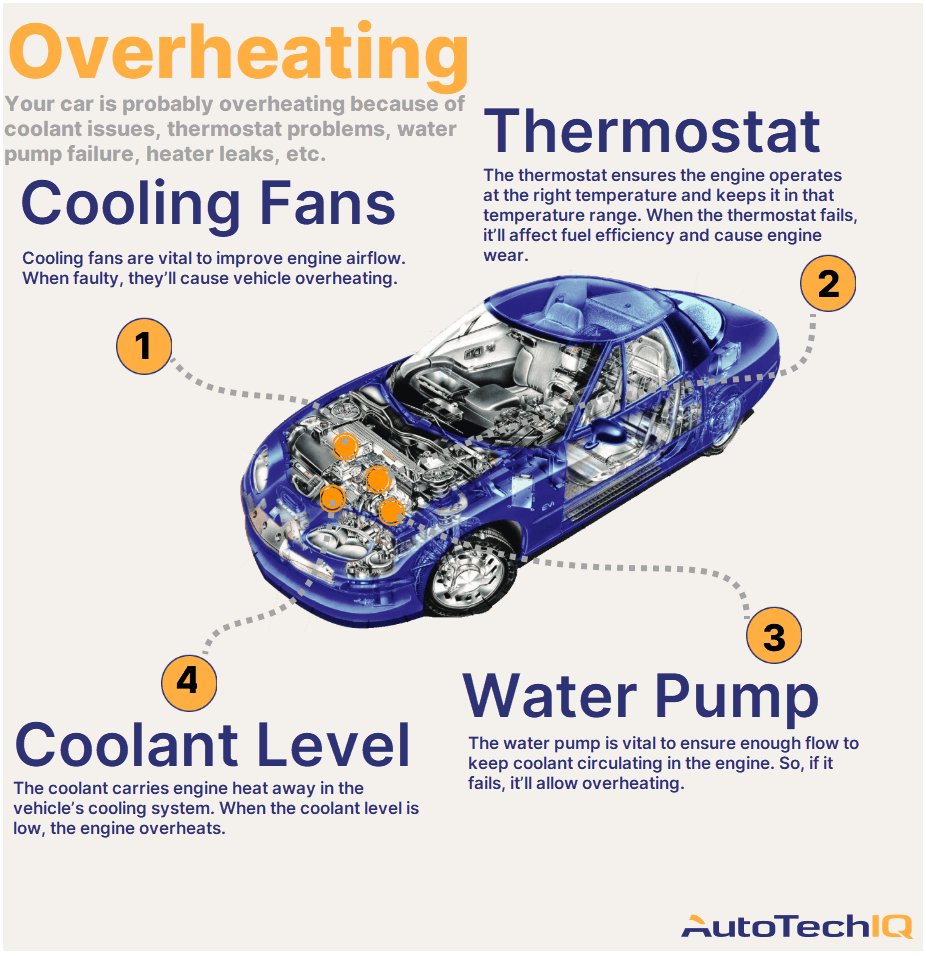How Fast Does a Car Engine Heat Up?
Factors Affecting Engine Warm-Up Time
The rate at which a car engine heats up depends on several factors, including:
- Ambient temperature: A cold engine will warm up faster in warm weather than in cold weather.
- Engine size: A larger engine will take longer to warm up than a smaller engine.
- Coolant level: A low coolant level can cause the engine to overheat and take longer to warm up.
- Thermostat: A faulty thermostat can prevent the engine from reaching its optimal operating temperature.
- Driving conditions: Idling or driving at low speeds can cause the engine to warm up more slowly than driving at higher speeds.
Average Warm-Up Times
On average, a car engine will reach its optimal operating temperature of around 195 degrees Fahrenheit (90 degrees Celsius) within 5 to 15 minutes of starting. This time frame can vary depending on the factors mentioned above.
Benefits of Warming Up the Engine
Warming up the engine before driving can provide several benefits, including:
- Reduced wear and tear: Cold oil is thicker and less effective at lubricating engine components. Warming up the engine allows the oil to flow more freely and reduce friction.
- Improved fuel economy: A cold engine burns more fuel to compensate for the increased friction. Warming up the engine helps the engine run more efficiently.
- Reduced emissions: A cold engine produces more emissions than a warm engine. Warming up the engine helps the catalytic converter to work more effectively.
- Increased power: A warm engine produces more power than a cold engine. Warming up the engine allows the engine to reach its peak performance.
How to Warm Up Your Engine
To properly warm up your car engine, follow these steps:
- Start the engine and let it idle for a few minutes.
- Drive at low speeds for a few miles to allow the engine to reach its optimal operating temperature.
- Avoid sudden acceleration or heavy loads until the engine is fully warmed up.
Warning Signs of Overheating
If your car engine is overheating, you may notice the following signs:
- Steam or coolant leaking from the engine
- High coolant temperature gauge
- Knocking or pinging noises from the engine
- Loss of power
- Engine stalling
If you experience any of these symptoms, stop driving immediately and allow the engine to cool down. Check the coolant level and look for any leaks. If the problem persists, contact a mechanic.
Conclusion
The time it takes for a car engine to warm up varies depending on several factors. However, by following the tips outlined above, you can ensure that your engine reaches its optimal operating temperature safely and efficiently. Properly warming up your engine can help extend its life and improve its performance.





